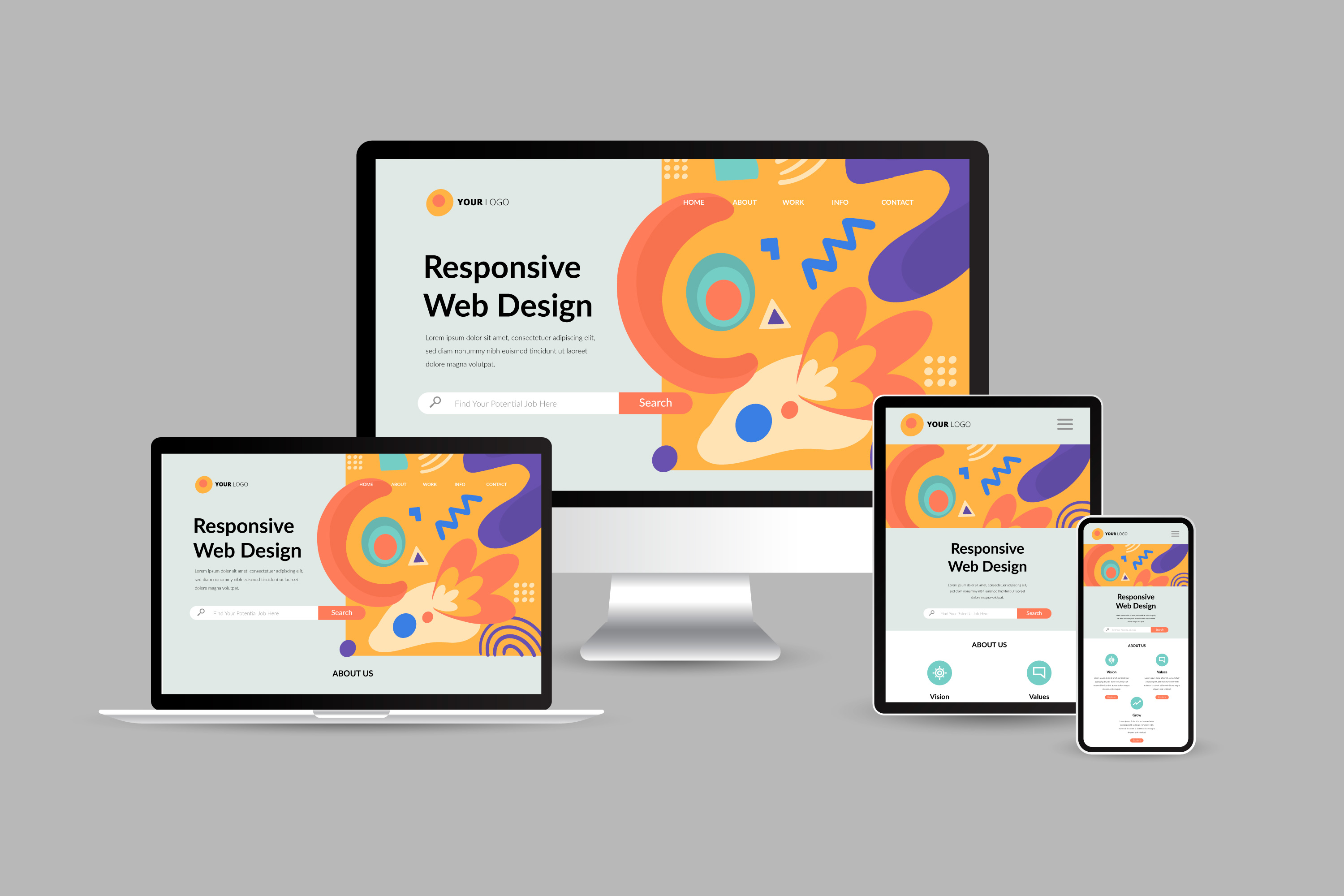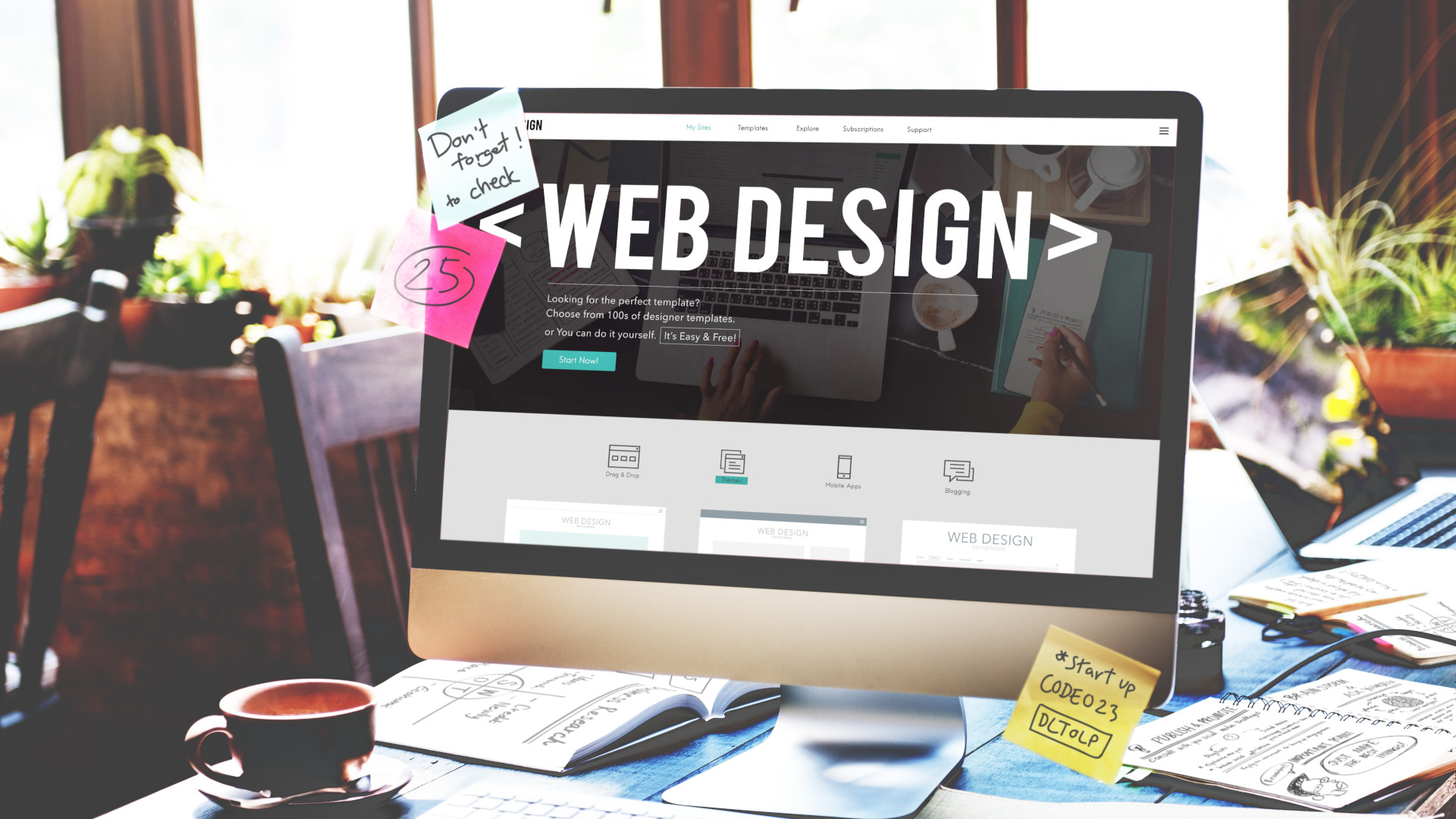Just How Website Design Influences SEO and Online Performance
Just How Website Design Influences SEO and Online Performance
Blog Article
Maximize Customer Experience With Cutting-edge Web Site Style Solutions
In today's electronic landscape, making the most of user experience with ingenious web site design options is critical for companies seeking to engage their target market efficiently. By embracing user-centric style concepts, organizations can produce interfaces that not just fulfill individual demands but likewise boost total complete satisfaction. Trick aspects such as receptive layouts, instinctive navigation, and efficient aesthetic pecking order play a vital role in this process. The assimilation of interactive aspects can additionally raise the user journey, motivating a reevaluation of traditional layout strategies. What methods might arise when we take into consideration the developing expectations of users?
Comprehending User-Centric Design

To carry out user-centric layout effectively, it is vital to carry out thorough research, consisting of individual meetings, surveys, and use testing. These study techniques supply important information that educates layout choices, making certain that the final item aligns with user expectations. In addition, producing user characters can aid designers envision and understand with the end-users, assisting the style process towards much more pertinent solutions.
Moreover, iterative layout is an essential component of user-centric techniques. By constantly screening and refining layouts based on user responses, designers can identify discomfort points and locations of enhancement, leading to a more refined final item. Ultimately, user-centric layout is not just a phase in the development procedure but a continuous dedication to prioritizing individual needs, resulting in more reliable and engaging digital experiences.
Relevance of Responsive Layouts
As digital interactions progressively take place across a variety of devices, the relevance of receptive designs can not be overemphasized. A responsive format ensures that a site adjusts seamlessly to different screen sizes, from desktop screens to mobile phones. This versatility is critical in today's multi-device landscape, where individuals expect a consistent and engaging experience no matter exactly how they access web content.
The key advantage of responsive design is improved individual satisfaction. When a site is maximized for all devices, it reduces the need for zooming, scrolling, or horizontal navigating, which can lead and irritate individuals to greater bounce prices. Furthermore, search engines like Google focus on mobile-friendly internet sites in their ranking formulas, making receptive layouts essential for efficient search engine optimization methods.
In addition, receptive designs assist in simpler upkeep and updates. Rather of taking care of separate variations of a web site for different tools, a single, fluid design can be modified, conserving time and sources. This all natural method not just enhances effectiveness but likewise promotes brand name coherence across platforms. Eventually, buying responsive designs is not simply a pattern; it is an essential concept of contemporary website design that significantly boosts individual experience and involvement.
Enhancing Navigating and Ease Of Access
Effective navigation and access are essential parts of a properly designed web site, significantly affecting customer involvement and contentment. A straightforward navigating framework enables site visitors to find info quickly and intuitively, reducing stress and raising the possibility of repeat sees. Carrying out clear, descriptive tags for navigation links, together with a logical power structure, can guide individuals flawlessly via the site.
Accessibility is just as critical, ensuring that all users, despite their capacities or handicaps, can communicate with the site properly. This can be attained with using ideal color contrasts, text dimensions, and alt text for images, which together enhance the experience for aesthetically impaired customers. Incorporating key-board navigating and display reader compatibility broadens gain access to for customers with varied requirements.
Regular usability testing can give beneficial insights right into navigation effectiveness and availability issues. By gathering responses from real users, designers can identify discomfort points and make enlightened modifications. Eventually, focusing on navigation and ease of access not only fosters inclusivity however likewise cultivates a positive customer experience, enhancing the brand name's commitment to quality and user treatment in an increasingly digital landscape.
Making Use Of Aesthetic Pecking Order Successfully
Aesthetic power structure acts as a guiding structure in website layout, guiding customers' attention to the most crucial elements on a page. By purposefully organizing visual components such as typography, spacing, and shade, designers can create a clear path for individuals to follow. This framework not just boosts customer experience however likewise improves material understanding.
One efficient method to develop aesthetic power structure is through making use of dimension and scale. Larger elements naturally bring in more interest, making headlines and vital visuals noticeable. Matching this method with contrasting colors can further differentiate primary content from additional details, guaranteeing that important information attracts attention.
Furthermore, the plan of components plays a critical duty in directing individual communication. Using a grid design can produce a cohesive flow, while these details whitespace aids to different material and lower cognitive load - Website Design. This deliberate spacing enables individuals to refine information extra quickly, resulting in enhanced engagement
Finally, using constant design patterns assists strengthen visual hierarchy, providing individuals with acquainted cues as they browse view the site. By prioritizing these principles, designers can successfully optimize individual experience, making certain that site visitors can effortlessly find the info they seek.
Incorporating Interactive Components
The unification of interactive elements into internet site design can significantly enhance customer interaction and general experience. Interactive functions such as quizzes, polls, and sliders not only captivate individuals yet also promote active involvement, making the searching experience much more remarkable. By encouraging customers to communicate, web sites can successfully maintain focus and lower bounce rates.
Additionally, integrating vibrant material like computer animations and float effects adds an appealing layer of interactivity. These aspects can assist users without effort with the website, highlighting essential details and calls to action. Computer animated buttons can attract interest and enhance click-through rates.
Furthermore, customization through interactive devices such as chatbots or suggestion engines enables websites to satisfy individual choices, fostering a feeling of link. This tailored strategy not just boosts customer satisfaction but additionally urges repeat check outs.
Integrating analytics devices to track interactions offers important insights right into individual actions, making it possible for constant enhancement of the interactive elements. Eventually, a properly designed interactive experience look here changes an easy surfing session right into an engaging journey, causing raised individual fulfillment and commitment. Integrating interactive elements is necessary for making best use of user experience in modern website style.
Verdict

In today's digital landscape, taking full advantage of customer experience via cutting-edge web site design solutions is vital for organizations seeking to involve their target market properly. Ultimately, prioritizing navigation and accessibility not only fosters inclusivity but additionally cultivates a favorable customer experience, strengthening the brand's dedication to quality and customer care in a significantly digital landscape.

In final thought, optimizing user experience with cutting-edge internet site layout services necessitates a dedication to user-centric concepts. Website Design.
Report this page